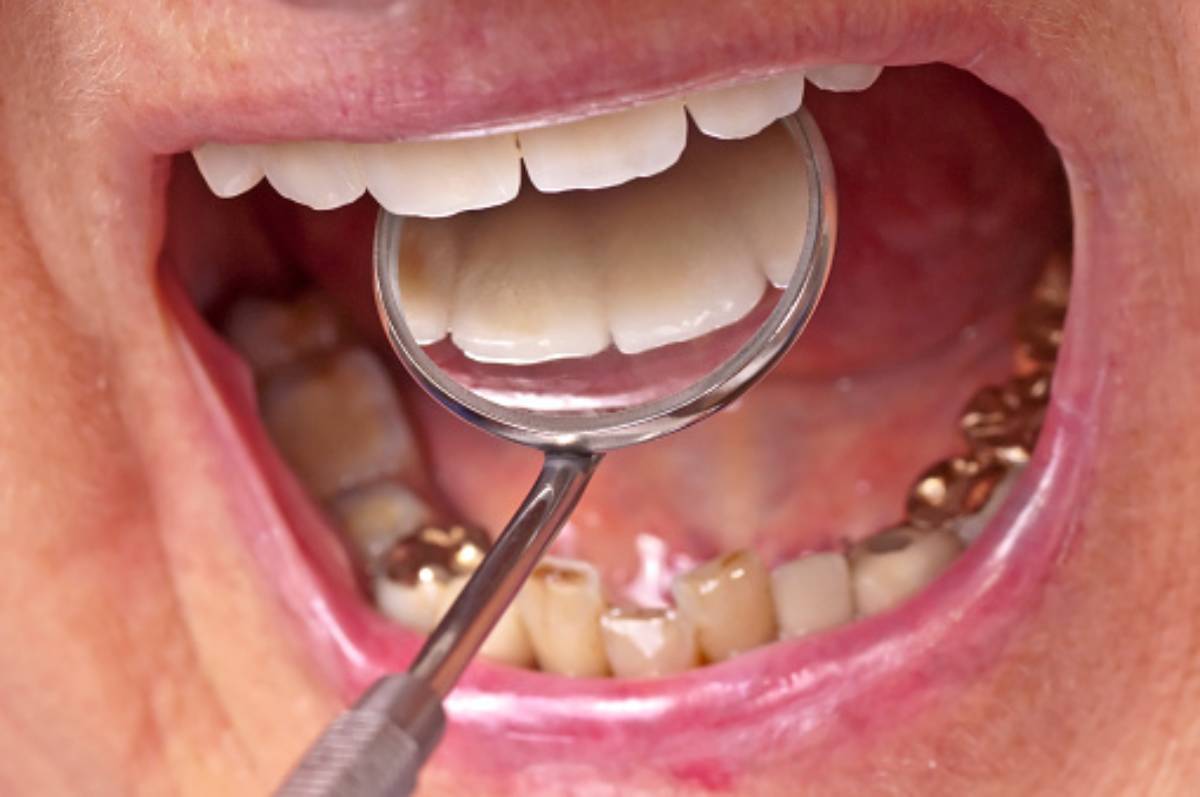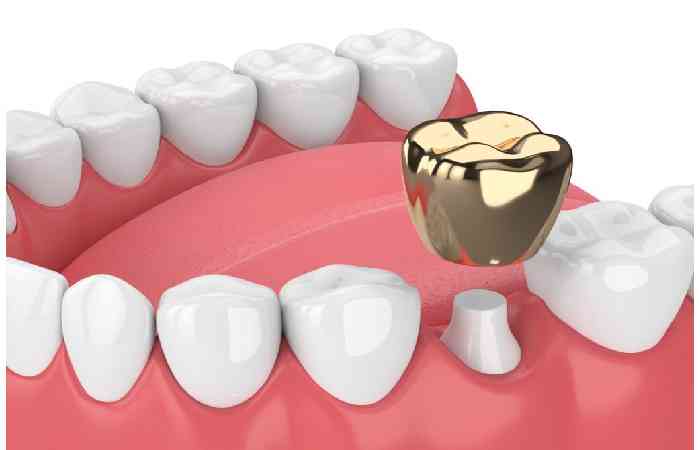Gold Tooth Crown Facts and History

Table of Contents
Gold Tooth Crown Facts and History
Dental crowns have a very interesting history that goes back thousands of years. Four thousand years ago, gold was used to modify teeth in Luzon, an island in the Philippines. Skeletons with gold caps and gold tooth replacements have been found.

If you recently had the unfortunate experience that you broke a tooth or had to repair a large cavity, you know the initial panic that you think you have ruined your big smile. But fear not! There are some common and practical solutions to repair damaged teeth. A standard option is to get a crown. If your dentist has told you that a gold-crowned tooth suits your specific dental needs, you probably have a few questions! Let’s discuss what a gold crown is, the reasons for obtaining it, and its unique history.
What is a Crown?
If your dentist has selected a material that matches the color of your existing tooth, it won’t be easy to notice! A gold crown, commonly known as a gold tooth cap, is a prosthetic appliance placed over a broken tooth to strengthen and improve its appearance. The crowns are cemented over the teeth to ensure they stay in place and can only be removed by a dentist.
Reasons for a Crown
- Some common reasons for needing a crown are:
- To prevent a weakened tooth from breaking.
- To restore an already broken tooth.
- As false teeth when only a tiny part of one of your teeth remains.
- To cover a root canal, dental insert, or discolored tooth.
- As with any dental procedure, you can expect minor side effects or uncomfortable sensations for the first few days afterward. As noted by the Cleveland Clinic, there are some potential side effects or problems with crown teeth that you may experience later on: temporary sensitivity around the crown, a problem with a loose or chipped crown, a dark line next to the line from the gums of your tooth crown, or allergic reaction to a metal (although this is rare).
Gold Crowns
Although it is known as a gold crown, it is a combination of gold, copper, and other metals. In addition to the seemingly unique smile you will have after completion, a gold tooth crown offers many positive benefits. The benefits of a gold crown include:
- Seals well to prevent recurrent cavities and leaks.
- Due to its strength, it is highly resistant to corrosion, breakage, and wear.
- Due to the strength of metals, only a minimal amount of extraction is required for healthy teeth.
- Very resistant to wear and tear and at the same time protects neighboring teeth.
- It has high compatibility with the gums.
Did You Know That There Are Five Key Types Of Dental Crown Materials?
The Cleveland Clinic describes them as metal (which includes gold, nickel, palladium, nickel, and chromium), porcelain, a combination of porcelain and metal, resin, and ceramic. While other materials have gained popularity, gold is still used. One of the main reasons your dentist chooses a gold crown is its durability. Your dentist will recommend the correct type of crown for you and discuss the advantages and disadvantages of each crown. They will discuss what makes the most sense in terms of tooth damage, your lifestyle, your budget, and your personal preferences!
History Of The Golden Crowns
The manufacture of dental appliances and accessories is an ancient practice. The decorations or ornaments of gold teeth in Southeast Asia date back 4,000 years, so the scientific work entitled “Goldwork, filing and blackened teeth: dental modifications in Luzon.” Whether gold, blackened or filed, changing teeth shows a method of beautification and the state itself. On an island in the Philippines, the first traces of gold teeth were found between the 14th and 15th centuries.
Gold dental appliances have been gaining popularity as a status symbol for many years, so it’s no wonder they go back so far. Archaeologists also found golden dental implements of the Etruscans in Italy as early as 630 BC. C.
Whether you already have a crown or haven’t had major dental work, the health of your teeth and gums should be a top priority. That means scheduling regular checkups with your dentist. They are an excellent source of information, such as proper brushing techniques and how to recognize cavities. The rest is up to you! Take care of your daily oral care routine. Brush your teeth twice a day, clean the spaces between your teeth once a day with dental floss, an interdental cleaner, or water floss, and then rinse them with mouthwash. But sometimes things happen, and a crown is inevitable in the end! It’s good to calm down when talking to your dentist about your crown options and why a gold crown may be ideal for you.
Related Searches:
[gold crown price in india]
[real gold crown]
[gold crown headpiece]
[gold crown tooth]
[gold crown wedding]
[gold crown tooth value]
[gold crown tooth side effects]
[how much is a gold tooth uk]
[types of dental crowns and cost]
[gold crown tooth uk]
[gold crown tooth nhs]
[dental crown cost]
[white gold crown tooth]
[gold crown tooth cost]
[how much are gold teeth worth uk]
[gold crown tooth side effects]
[how much is a gold crown worth 2021]
[dental gold value calculator]
[gold crown tooth near me]
[gold dental bridge cost]
[where to sell dental gold]
[Gold crown tooth value]
[Gold crown tooth side effects]
[How much is a gold tooth UK]
[Types of dental crowns and cost]
[Gold crown tooth UK]
[Gold crown tooth NHS]
[Dental crown cost]
[White gold crown tooth]

